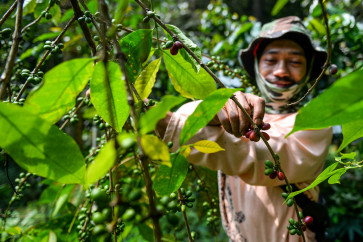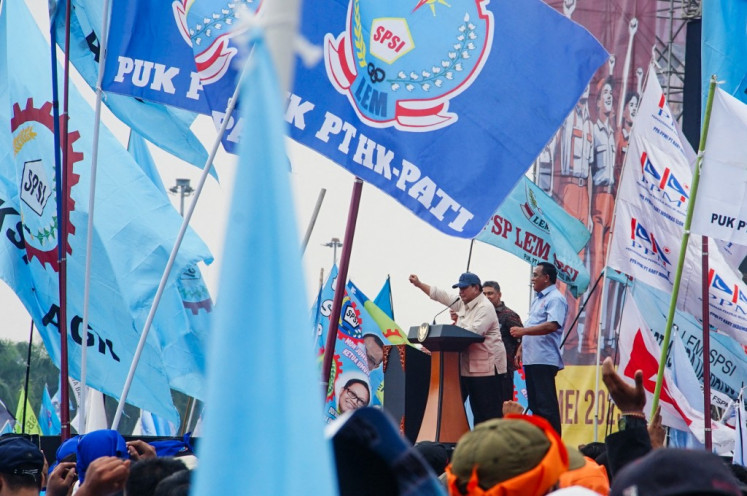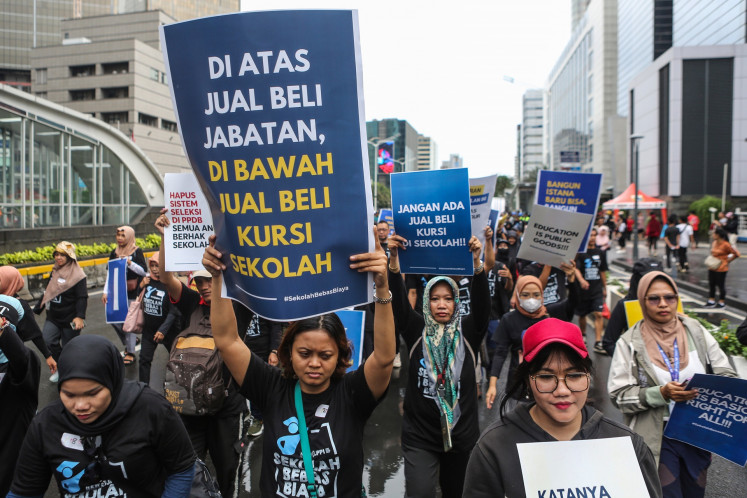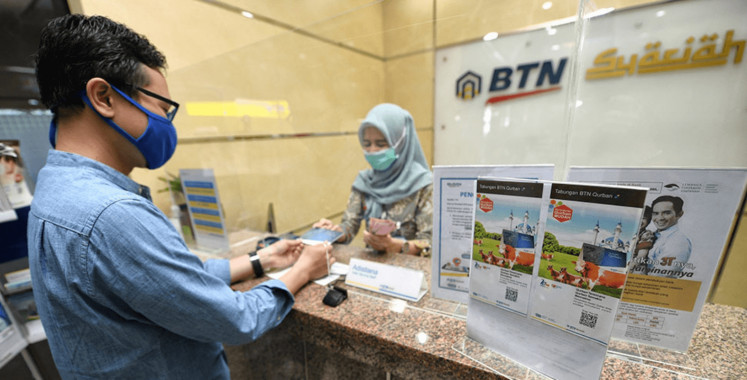Govt withdraws plan to ease ore export ban
The government has decided to withdraw its plan to ease the ban on ore exports as the relaxation of the mining policy would harm its commitment to fully implement the 2009 Mining Law
Change text size
Gift Premium Articles
to Anyone

T
he government has decided to withdraw its plan to ease the ban on ore exports as the relaxation of the mining policy would harm its commitment to fully implement the 2009 Mining Law.
Energy and Mineral Resources Minister Sudirman Said explained Monday the plan was scrapped because it would bring more harm than good to the government's efforts in developing the downstream industry in the mining sector.
'The development of the downstream industry in the mining sector is part of an important process in our industrialization,' he said.
Sudirman also noted the plan would contradict the government's commitment to strengthen the downstream industry in the mining sector so that Indonesia will be able to export mineral products with higher added value.
The government applied the ban on mineral ore exports in January last year as part of the implementation of 2009 Mining Law, which requires mining firms to process minerals in local smelters before selling them overseas. It was intended to increase the value of the country's mineral production.
Exemptions were granted to major copper producers such as PT Freeport Indonesia and PT Newmont Nusa Tenggara to export semi-finished mineral products, known as copper concentrates, as these two producers showed serious commitment to build smelters.
The regulation was met with protest, including the request last year for a judicial review of the government's ban filed by a group of mining companies, including Indonesia's Mineral Entrepreneurs Association (Apemindo). However, the Constitutional Court rejected the review, stating that the prohibition did not violate the Mining Law.
Earlier this year, government's advisory team also proposed the removal of the export ban on raw minerals particularly nickel and bauxite to help miners raise fresh funds for the construction of their smelters, which had been stalled due to financial problems. The proposal included allowing exports from miners whose smelters are more than 30 percent complete.
Sudirman admitted that the government previously discussed relaxing the policy as an incentive to attract investors and to help expedite the smelters development as it would provide cash flow from the exports.
However, he said that the government would look for other kinds of incentives to expedite the smelters.
Based on the data from the ministry, there were currently 88 holders of mining operation permits (IUP) that were building 72 smelters throughout Indonesia as of July. Out of the total, 28 IUP holders that were building 25 smelters were on the commissioning or production phase, which is the last phase of the progress.
Nickel smelters dominate with 35 projects ongoing at present, followed by 11 zircon facilities and eight iron.
Last week, 21 smelter companies claiming to have spent US$30 billion in total investment stated that the relaxation of nickels and bauxites export ban would also kill the smelters.
'If the [ore] export is opened again, we are dead,' vice president director of PT Bintang Delapan Mineral Alexander Barus said as quoted by tempo.co, adding that Bintang Delapan Group subsidiary PT Sulawesi Mining Investment has invested $2.3 billion for nickel smelters. (fsu)









